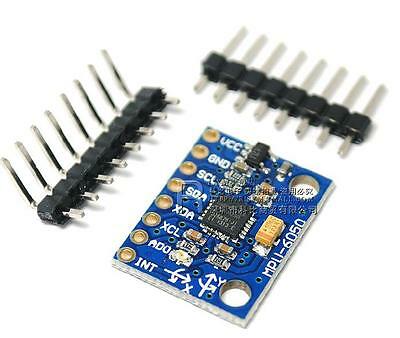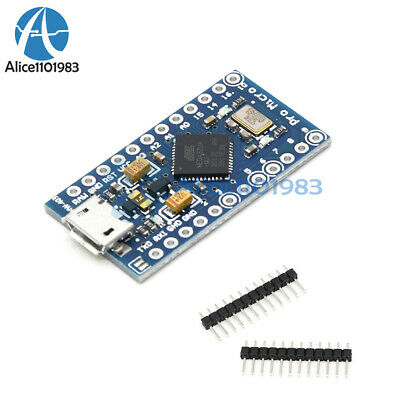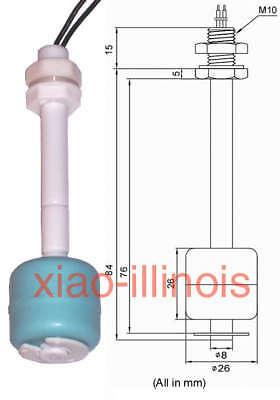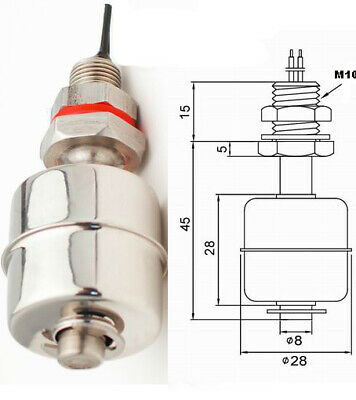-40%
1PCS Voice Recognition Module Board V3 Kit For Arduino Compatible New
$ 10.02
- Description
- Size Guide
Description
HomeElectronic Component
Chips
Sensor
Arduino Module
Raspberry Pi
1PCS Voice Recognition Module Board V3 Kit For Arduino Compatible New
Popular
Popular
Product Introduction
Product Description:
Voice Recognition Module is a compact and easy-control speaking recognition board.
This product is a speaker-dependent voice recognition module. It supports up to 80 voice commands in all. Max 7 voice commands could work at the same time. Any sound could be trained as command. Users need to train the module first before let it recognizing any voice command.
This board has 2 controlling ways: Serial Port (full function), General Input Pins (part of function). General Output Pins on the board could generate several kinds of waves while corresponding voice command was recognized.
What are the updated features ?
We already have Voice Recognition module V2 and it supports 15 commands in all and only 5 commands at the same time.
On V2, voice commands are separated into 3 groups while you training it. And only one group (5 commands) could to be imported into Recognizer. It means only 5 voice commands are effective at the same time.
On V3, voice commands are stored in one large group like a library. Any 7 voice commands in the library could be imported into recognizer. It means 7 commands are effective at the same time.
Parameter
1、Voltage: 4.5-5.5V
2、Current: <40mA
3、Digital Interface: 5V TTL level for UART interface and GPIO
4、Analog Interface: 3.5mm mono-channel microphone connector
and microphone pin interface
5、Size: 31mm x 50mm
6、Recognition accuracy: 99% (under ideal environment)
Feature
1、Support maximum 80 voice commands, with each voice 1500ms
(one or two words speaking)
2、Maximum 7 voice commands effective at same time
3、Arduino library is supplied
4、Easy Control: UART/GPIO
5、User-control General Pin Output
Zip Document Download
Manual
Library for Arduino
Video Instruction Linx and MAXOS
How to play VR3 with VR3
How to test VR3 Protocol on PC
USB-TTL Module Compatible With 5V And 3.3v
Feature :
1、3.3V and 5V output is optional
2、Compatibale with Windows, Linux and MAXOS
3、Stable and fast
This module comes with the wire
Click here to download USB-TTL driver
Application
Example 1
Here i will show you an example how to control RGB by voice.
1. Recording
We need to send serial command to this module. You may need a USB-TTL module to connect it with PC. Send command 0xaa11 to record. Please refer to the manual for more information.
Please record the following voice instrctions in order :
1、WHITE
2、RED
3、GREEN
4、BLUE
5、OFF
Then send command 0xAA21 to import group 1.
2. Hardware connection
The module in above picture is V1. For V2, the connection is the same.
3. Code
int redPin = 11; // R petal on RGB LED module connected to digital pin 11
int greenPin = 9; // G petal on RGB LED module connected to digital pin 9
int bluePin = 10; // B petal on RGB LED module connected to digital pin 10
byte com = 0; //reply from voice recognition
void setup()
{
Serial.begin(9600);
pinMode(ledPin, OUTPUT); // sets the ledPin to be an output
pinMode(redPin, OUTPUT); // sets the redPin to be an output
pinMode(greenPin, OUTPUT); // sets the greenPin to be an output
pinMode(bluePin, OUTPUT); // sets the bluePin to be an output
delay(2000);
Serial.write(0xAA);
Serial.write(0x37);
delay(1000);
Serial.write(0xAA);
Serial.write(0x21);
}
void loop() // run over and over again
{
while(Serial.available())
{
com = Serial.read();
switch(com)
{
case 0x11:
color(255,255,255); // turn RGB LED on -- white
break;
case 0x12:
color(255, 0, 0); // turn the RGB LED red
break;
case 0x13:
color(0,255, 0); // turn the RGB LED green
break;
case 0x14:
color(0, 0, 255); // turn the RGB LED blue
break;
case 0x15:
color(0,0,0); // turn the RGB LED off
break;
}
}
}
void color (unsigned char red, unsigned char green, unsigned char blue) // the color generating function
{
analogWrite(redPin, red*102/255);
analogWrite(bluePin, blue*173/255);
analogWrite(greenPin, green*173/255);
}
Upload the code above to Arduino. Please disconnect TX and RX while uploading code because uploading would occupy serial interface.
4. Result Show
After uploading is done, connect RX and TX, and then press RESET button on Arduino.
You can see the video on Youtube
Example 2
Here we will show you how to use the GPIO output to control other device.
Step 1
First you have to record the voice instruction. Send command 0xAA12 (group 2).
Please record the following 5 voice instructions in given order:
"One"
"Two"
"Three"
"Four"
"Five"
Please note you have to speak clearly.
Step 2
Connect the device with LEDs in the following way :
Step 3
Import voice group 2 by command 0xAA22 or set pin GCH HIGH and pin GCL LOW
Speak voice instruction.
Payment
Shipping
Refund
Payment
We accept PayPal only.
But we only
Accept
your
Ebay Address
,Please Make sure it's 100% right.
Payment must be received in 5 business days of auction closing.
Please leave note for your special request (e.g. Colors or Size) in PayPal when you pay the order.
Any special request cannot be accepted after 24 hours of payment, because most of orders will be processed instantly and same day dispatched.
Shipping
We maintain high standards of excellence and strive for 100% customer satisfaction! Feedback is very important to us. We request that you contact us immediately BEFORE you give us neutral or negative feedback, so that we can satisfactorily address your concerns.
Refund
All package need to
wait 30 days
(US only n
eed 7-10 days)
,
Please take care it.Less than 30 days,we can't take a refund
.
If the item is defect when you receive it or you are not satisfied with it, please return it within 14 days for a replacement or money back. But the items must be back in factory condition. Please contact us and double check the return address before you return it.
If is item is defective in 12 months, you can return it to us. We will send you a new replacement after receiving the defective item.
Home
Electronic Component
Chips
Sensor
Arduino Module
Raspberry Pi
1PCS Voice Recognition Module Board V3 Kit For Arduino Compatible New
Product Introduction
Product Description:
Voice Recognition Module is a compact and easy-control speaking recognition board.
This product is a speaker-dependent voice recognition module. It supports up to 80 voice commands in all. Max 7 voice commands could work at the same time. Any sound could be trained as command. Users need to train the module first before let it recognizing any voice command.
This board has 2 controlling ways: Serial Port (full function), General Input Pins (part of function). General Output Pins on the board could generate several kinds of waves while corresponding voice command was recognized.
What are the updated features ?
We already have Voice Recognition module V2 and it supports 15 commands in all and only 5 commands at the same time.
On V2, voice commands are separated into 3 groups while you training it. And only one group (5 commands) could to be imported into Recognizer. It means only 5 voice commands are effective at the same time.
On V3, voice commands are stored in one large group like a library. Any 7 voice commands in the library could be imported into recognizer. It means 7 commands are effective at the same time.
Parameter
1、Voltage: 4.5-5.5V
2、Current: <40mA
3、Digital Interface: 5V TTL level for UART interface and GPIO
4、Analog Interface: 3.5mm mono-channel microphone connector
and microphone pin interface
5、Size: 31mm x 50mm
6、Recognition accuracy: 99% (under ideal environment)
Feature
1、Support maximum 80 voice commands, with each voice 1500ms
(one or two words speaking)
2、Maximum 7 voice commands effective at same time
3、Arduino library is supplied
4、Easy Control: UART/GPIO
5、User-control General Pin Output
Zip Document Download
Manual
Library for Arduino
Video Instruction Linx and MAXOS
How to play VR3 with VR3
How to test VR3 Protocol on PC
USB-TTL Module Compatible With 5V And 3.3v
Feature :
1、3.3V and 5V output is optional
2、Compatibale with Windows, Linux and MAXOS
3、Stable and fast
This module comes with the wire
Click here to download USB-TTL driver
Application
Example 1
Here i will show you an example how to control RGB by voice.
1. Recording
We need to send serial command to this module. You may need a USB-TTL module to connect it with PC. Send command 0xaa11 to record. Please refer to the manual for more information.
Please record the following voice instrctions in order :
1、WHITE
2、RED
3、GREEN
4、BLUE
5、OFF
Then send command 0xAA21 to import group 1.
2. Hardware connection
The module in above picture is V1. For V2, the connection is the same.
3. Code
int redPin = 11; // R petal on RGB LED module connected to digital pin 11
int greenPin = 9; // G petal on RGB LED module connected to digital pin 9
int bluePin = 10; // B petal on RGB LED module connected to digital pin 10
byte com = 0; //reply from voice recognition
void setup()
{
Serial.begin(9600);
pinMode(ledPin, OUTPUT); // sets the ledPin to be an output
pinMode(redPin, OUTPUT); // sets the redPin to be an output
pinMode(greenPin, OUTPUT); // sets the greenPin to be an output
pinMode(bluePin, OUTPUT); // sets the bluePin to be an output
delay(2000);
Serial.write(0xAA);
Serial.write(0x37);
delay(1000);
Serial.write(0xAA);
Serial.write(0x21);
}
void loop() // run over and over again
{
while(Serial.available())
{
com = Serial.read();
switch(com)
{
case 0x11:
color(255,255,255); // turn RGB LED on -- white
break;
case 0x12:
color(255, 0, 0); // turn the RGB LED red
break;
case 0x13:
color(0,255, 0); // turn the RGB LED green
break;
case 0x14:
color(0, 0, 255); // turn the RGB LED blue
break;
case 0x15:
color(0,0,0); // turn the RGB LED off
break;
}
}
}
void color (unsigned char red, unsigned char green, unsigned char blue) // the color generating function
{
analogWrite(redPin, red*102/255);
analogWrite(bluePin, blue*173/255);
analogWrite(greenPin, green*173/255);
}
Upload the code above to Arduino. Please disconnect TX and RX while uploading code because uploading would occupy serial interface.
4. Result Show
After uploading is done, connect RX and TX, and then press RESET button on Arduino.
You can see the video on Youtube
Example 2
Here we will show you how to use the GPIO output to control other device.
Step 1
First you have to record the voice instruction. Send command 0xAA12 (group 2).
Please record the following 5 voice instructions in given order:
"One"
"Two"
"Three"
"Four"
"Five"
Please note you have to speak clearly.
Step 2
Connect the device with LEDs in the following way :
Step 3
Import voice group 2 by command 0xAA22 or set pin GCH HIGH and pin GCL LOW
Speak voice instruction.
Payment
Shipping
Refund
Payment
We accept PayPal only.
But we only
Accept
your
Ebay Address
,Please Make sure it's 100% right.
Payment must be received in 5 business days of auction closing.
Please leave note for your special request (e.g. Colors or Size) in PayPal when you pay the order.
Any special request cannot be accepted after 24 hours of payment, because most of orders will be processed instantly and same day dispatched.
Shipping
We maintain high standards of excellence and strive for 100% customer satisfaction! Feedback is very important to us. We request that you contact us immediately BEFORE you give us neutral or negative feedback, so that we can satisfactorily address your concerns.
Refund
All package need to
wait 30 days
(US only n
eed 7-10 days)
,
Please take care it.Less than 30 days,we can't take a refund
.
If the item is defect when you receive it or you are not satisfied with it, please return it within 14 days for a replacement or money back. But the items must be back in factory condition. Please contact us and double check the return address before you return it.
If is item is defective in 12 months, you can return it to us. We will send you a new replacement after receiving the defective item.












